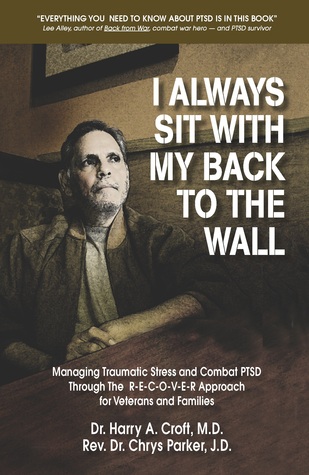INFORMATION ABOUT Post Traumatic Stress Disorder
STRESSOR:
Exposure to events that involved death or threatened death, serious injury,
or sexual violation
That were either:
-
Experienced personally
-
Witnessed while happening to someone else
-
Learned about – happening to a close relative or
friend -
Repeatedly exposure to details about traumatic events
(police/first responders)
SYMPTOMS:
-
Reccurrent unwanted re-experiencing of the tauma
-
Recurrent unwanted thoughts of trauma
-
Recurrent distressing dreams (recalled or behavior seen by
others) -
Acting or feeling as if event recurring while awake
(flashbacks) -
Intense physical distress at exposure to triggers
reminding of trauma -
Psychological reactions to cues (panic, fear, concern)
Efforts to avoid thoughts, feelings, sensations
- Avoiding people and places that remind about trauma
- Negative Thoughts and Emotions not present before trauma
- Diminished interest or participation in activities
- Feelings of detachment and estrangement from others
- Pervasive negative emotional state
- Persistent inability to experience positive emotion
- Inability to recall an important aspect of trauma
- Persistent distorted blame of self and others about causes and consequences of trauma
- Persistent and exaggerated negative expectations about self, others, and the world (eg, becoming cynical, untrusting of others
Increased Arousal
- Irritability or outbursts of anger
- Difficulty falling or staying asleep
- Exaggerated startle response
- Hyper vigilance
- Difficulty concentrating
COMMON PSYCHIATRIC CONDITIONS CO-OCCURRING WITH PTSD
- Depression
- Substance Abuse
- Anxiety Disorders: Panic, Generalized Anxiety, Social Phobia, Obsessive-Compulsive Type Conditions
COMMONLY MEDICAL CONDITIONS ASSOCIATED WITH PTSD:
- High Blood Pressure, Rapid Heart Rate
- High Cholesterol
- Headaches
- Dizziness
- Stomach and Bowel Problems
- Diabetes
- Traumatic Brain Injury (if exposed to blast situations)
For more information:
WEBSITES FOR PATIENTS AND THOSE CARING FOR/ABOUT THEM:
FOR PROFESSIONALS:
To download forms
www.mybacktothewall/forms.html
For professional and patient information
www.ptsd.va.gov/professional/index.asp (for physicians and mental health professionals)
Books with references
Clinical Manual for Management of PTSD
Benedek DM, et al. Clinical manual for management of PTSD. Washington, DC.: American Psychiatric Publishing; 2011.
Once a Warrior–Always a Warrior
Hoge CW. Once a Warrior–Always a Warrior. Guilford, CT: GPP Life, 2010.
“PTSD: Principles of Diagnosis and Treatment” www.medscape.org/viewarticle/757160
“Treatment for Posttraumatic Stress Disorder in Military and Veteran Populations: Initial Assessment” Institute of Medicine. http://www.iom.edu/
Learn more from Dr. Croft’s book on PTSD: “I Always Sit With My Back To The Wall”.
Search Dr.Croft.com
Dr. Harry Croft’s PTSD Blog
Recent Comments
Archives
- August 2022
- December 2018
- April 2017
- March 2017
- February 2017
- January 2017
- October 2016
- January 2015
- October 2014
- April 2013
Categories
- Abuse
- Alzheimer's
- bipolar
- depression
- Eating Disorder
- flotation therapy
- Media
- PTSD
- Research
- Uncategorized
- Updates





